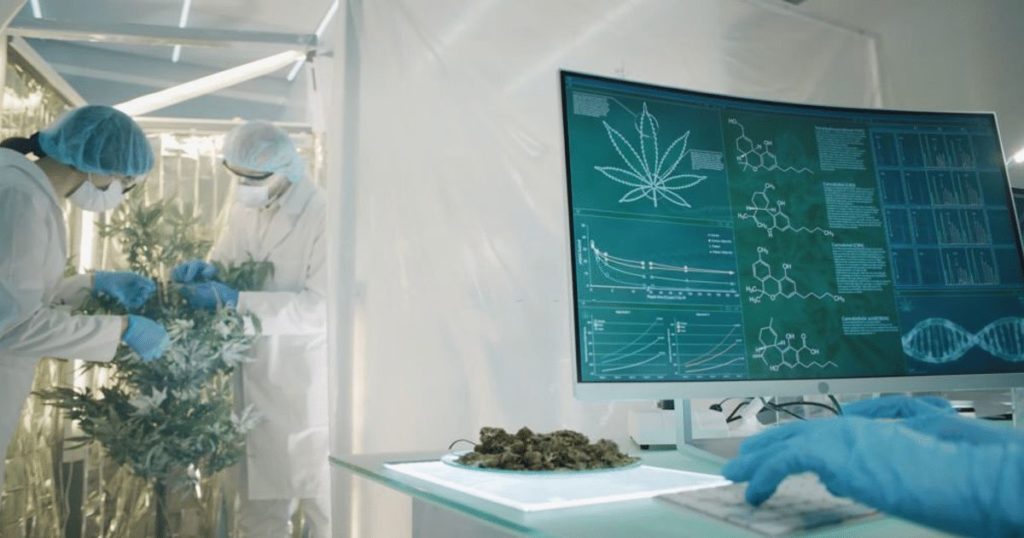We’ve always known that there are medical benefits to using our favorite green herb. Still, the FDA has only approved it for medicinal use in select cases – predominantly epilepsy. The National Institute of Health (NIH), however, has recently expressed interest in funding holistic research of cannabis and its effects on cancer or cancer patients.
What Is The Connection Between Cannabis And Cancer?
Cannabis has been used by many for decades as a herbal remedy for many medical conditions. Recently, the National Institute of Health has taken an interest in research surrounding the relationship between marijuana and cancer. While it is a known fact that the smoking of marijuana can be harmful, there is no immediate connection to its contribution to lung cancer like there is with smoking nicotine and tobacco. The NIH says that there is insufficient research information available, and the gap needs to be breached to provide valuable research information.
The reason the NIH’s National Cancer Institute has expressed interest in improving research efforts is that about one out of every four cancer patients has reported using cannabis products to manage their symptoms – including anorexia, nausea, and pain. Research, however, is currently limited.
How THC And CBD Can Help Combat Medical Symptoms
Tetrahydrocannabinol, most commonly known as THC, provides a high and helps combat pain and nausea while reducing inflammation. Cannabidiol, known as CBD, helps ease anxiety and paranoia and is actually used to treat seizures currently, as it also has anti-inflammatory properties.
We don’t fully know how cannabinoids affect our endocannabinoid system, nor do we fully understand the cannabis plant. There are over 100 unique cannabinoids in the cannabis plant, and they may have a variety of different effects. The compounds of cannabis have, in some studies, shown to have “many cancer-relevant processes, such as cell proliferation, motility, and survival,” according to a notice released by the NIH.
“Cancer cell line experiments show that THC and CBD can mediate many anti-tumor effects, including inducing apoptosis and inhibiting cell proliferation, invasion, and angiogenesis,” it continues. “These anti-tumor activities have led to early clinical testing of THC and CBD for glioblastoma and prostate cancers.”
The NIH does not make any claims regarding the validity of these past studies, but it has released information on the topics they are seeking to study.
The State Of Research
Multiple studies have shown how patients in clinical trials who have had marijuana need less pain medication. Scientists have discovered through clinical trials that THC and CBD can slow down the growth of certain types of cancers grown in laboratories as well.
Recent studies on human subjects have shown that clinical trials with THC and CBD are safe to treat cancer, but there is no clear understanding of how they help. This, alongside burdensome administrative roadblocks, are the largest preventative factors barring cannabis research from succeeding. Each clinical trial patient has a different reaction based on the amount of marijuana inhaled or ingested. Therefore, the steps taken and the information recorded during the research process are crucial.
The NIH is seeking not only to understand how cannabis and cannabinoids affect cancer development but to define the mechanism of cannabis and cannabinoid action that acts to alleviate symptoms of cancer or treatment. They also seek to develop a new, human-relevant system to understanding cannabinoids and create an improved understanding of how endocannabinoid signaling pathways could potentially prevent certain cancers from growing.
These projects are just guidelines, though, and the NIH is open to studying more or different topics in their quest for research. For more details on the funded research projects, visit this Marijuana Moment.
We are certainly excited about more research opportunities in cannabis. Marijuana has been touted as a medical miracle worker for decades now, and we think it’s high time science caught up.
Enjoyed that first hit? Come chill with us every week at the Friday Sesh for a freshly packed bowl of the week’s best cannabis news!

















